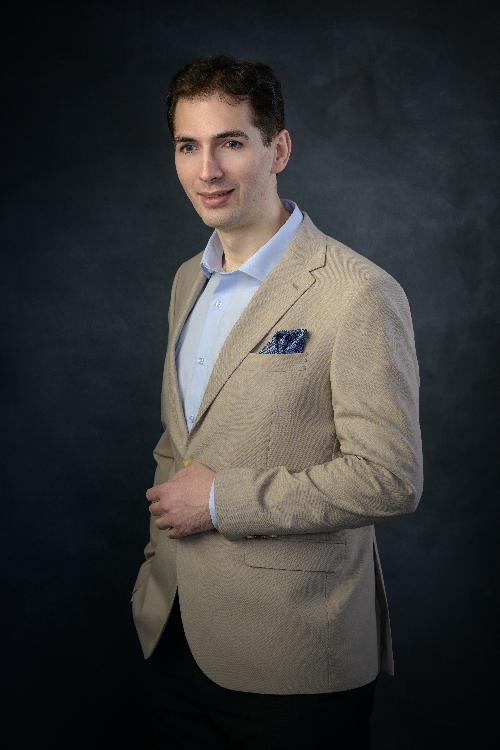If you are happy with the use of cookies, click ‘Allow all cookies for best website experience’. Or click ‘Use necessary cookies only’ to rely on the cookies required for optimal functionality.
Click here to learn more about our cookie policy.
ABOUT
When life is challenging your potential, never forget: satisfaction comes from the value that you can create.
ABOUT
—
When life is challenging your potential, never forget: satisfaction comes from the value that you can create.
I am an award-winning psychologist, author, and social entrepreneur with 15 years of experience providing evidence-based psychological services to individuals, charities, and organisations.
HCPC-registered in clinical, counselling, occupational, and health psychology (supervisor): I bring a unique, interdisciplinary set of skills that allows me to design and deliver insightful therapies and innovative solutions.
Rooted in the scientist-practitioner model: my work is guided by ongoing psychological research, laying the foundation for effective interventions and transformative projects that advance mental health, and drive meaningful social impact.
My top 5 character values: honesty, creativity, courage, perseverance, altruism.
A creative mindset for professional development
Creativity is a powerful and fulfilling way to express your potential. What we learn becomes much more meaningful when curiosity relies on interests that lead the way.
Given the broad applications of psychology, I lean towards an interdisciplinary approach to support and promote human development. A dual Bachelor's degree in Psychology and Education Sciences, became the foundation for an integrative perspective, which has allowed to continue my academic journey at the same pace with two Master's degrees, in Human Resources psychology and in Clinical Psychology, Counselling, and Psychotherapy. An educational path made possible at the school of excellence at the Babeș-Bolyai University (Romania) and the Albert Ellis Institute (USA).
After graduation, I began working in private practice while contributing to community projects in partnership with various NGOs. I took on diverse roles—from counselling vulnerable youth to delivering training for marginalised communities and providing research coaching.
helped me develop a flexible, practice-based approach and a deep appreciation for the value of interdisciplinary work.
We Are What We Know, We Become What We Do
Pursuing a career in psychology was one of the best decisions I’ve ever made, as authentic motivation has the power to turn work into passion. Early on it became obvious that true discipline requires structure, persistence and skill, which motivated me to further qualify in complementary fields such as training, career counselling, project management, and innovation management. These proved to be essential for developing a reliable mindset, advance complex projects and trust challenge much more when aiming for innovation or lasting change.
A meaningful calling for a purposeful life
Luck is nothing but a hopeful yet meaningful illusion, we are meant to discover the opportunities that match our skills, values and potential. My most significant social achievements include receiving the Strengthening Citizen Voice award at the Mental Health Providers Forum Best Practice Awards 2015 (development and validation of the Self Advocacy Skills Training program for adults with mental distress), GSK Impact Award from the King's Fund, an intervention programme developed for the CoolTan Arts foundation, being named a finalist in the Gratitude at Work OpenIDEO global challenge (2017), and winning first prize at the RLSB Hackathon Tech for Good Award (2018).
My entrepreneurial initiatives include ResponsivEbooks® (an interactive platform designed to support engagement and learning for social development), The Self-Help Incubator® (a social initiative dedicated to unlocking human potential through innovation and psychological insight), or Mindful Living Networking (an event series created to cultivate critical thinking and encourage meaningful social interactions).
To me, progress means change, rehearsing new ways of thinking or a range of strategies to iterate development safely. The result, a genuine approach for you to always find a better way forward.



Research Abstracts
Research not only informs my practice, but it also allows you to understand the scientific elements that promote health and enhance performance. Below you can find a list of abstracts, including selected research I conducted so far.
Enhancing Sexual Fantasy using Mindfulness: A Matter of Absorption or Hedonic Capacity?
Perceived Vulnerability: Implication in Health, Safety and Performance (Book summary)
Perceived Vulnerability to Disease - Between Real and Imagined: a Theoretical Review
The Impact of Implicit Theories on the Need for Feedback in Educational Coaching
Perceived Vulnerability Theory - Explaining the Meaning of Extreme Risk-Taking for Indirect Suicide
Subscribe to my newsletter
- Gain valuable insights.
- Support social causes.
- Access exclusive offers.